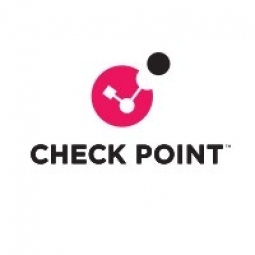Technology Category
- Cybersecurity & Privacy - Network Security
- Networks & Connectivity - Gateways
Applicable Industries
- Electronics
- National Security & Defense
Applicable Functions
- Maintenance
Use Cases
- Inventory Management
- Tamper Detection
About The Customer
Carmel Partners is a real estate investment firm that acquires, creates, and markets properties by combining cutting-edge innovation with bold investment. The company operates and invests in select markets across the U.S., including California, Colorado, Hawaii, New York, Washington, and Washington, D.C. With a growing multi-faceted organization, Carmel Partners was looking for a way to ensure business productivity, which includes securing network traffic, protecting against data loss, and providing secure site-to-site connectivity.
The Challenge
Carmel Partners, a real estate investment firm operating in select markets across the U.S., was faced with the challenge of maintaining network integrity, upholding customer confidence, and ensuring regulatory compliance while improving employee productivity. The growing multi-faceted organization needed a solution to secure network traffic, protect against data loss, and provide secure site-to-site connectivity. They also needed to equip their employees with the ability to securely share data, protect the network from next-generation and Web 2.0 threats, reduce management complexity, and improve visibility of traffic across multiple network segments.
The Solution
Carmel Partners turned to Check Point's 4000 series appliances for a robust, scalable, and centrally managed solution. These appliances provided multi-layered security and connectivity across Carmel's distributed environment, enabling secure data sharing, application access, and other resources via IPsec VPN tunnels. The Check Point Software Blade Architecture allowed Carmel to consolidate multiple Software Blades on individual, centrally managed appliances. This integration of technologies protected the network against malicious traffic and intrusions, blocked or limited access to potentially harmful or productivity-draining applications and websites, and protected against data loss. To manage its complex security infrastructure, Carmel relied on the Check Point Smart-1 25 security management appliance, which provided real-time visibility into all its Check Point gateways and Software Blades, simplifying management and improving security.
Operational Impact
Quantitative Benefit

Case Study missing?
Start adding your own!
Register with your work email and create a new case study profile for your business.
Related Case Studies.

Case Study
Remote Temperature Monitoring of Perishable Goods Saves Money
RMONI was facing temperature monitoring challenges in a cold chain business. A cold chain must be established and maintained to ensure goods have been properly refrigerated during every step of the process, making temperature monitoring a critical business function. Manual registration practice can be very costly, labor intensive and prone to mistakes.

Case Study
Cloud Solution for Energy Management Platform-Schneider Electric
Schneider Electric required a cloud solution for its energy management platform to manage high computational operations, which were essential for catering to client requirements. As the business involves storage and analysis of huge amounts of data, the company also needed a convenient and scalable storage solution to facilitate operations efficiently.

Case Study
Leveraging the IoT to Gain a Competitive Edge in International Competition
Many large manufacturers in and outside Japan are competing for larger market share in the same space, expecting a growing demand for projectors in the areas of entertainment, which requires glamor and strong visual performance as well as digital signage that can attract people’s attention. “It is becoming more and more difficult to differentiate ourselves with stand-alone hardware products,” says Kazuyuki Kitagawa, Director of Service & Support at Panasonic AVC Networks. “In order for Panasonic to grow market share and overall business, it is essential for us to develop solutions that deliver significant added value.” Panasonic believes projection failure and quality deterioration should never happen. This is what and has driven them to make their projectors IoT-enabled. More specifically, Panasonic has developed a system that collects data from projectors, visualizes detailed operational statuses, and predicts issues and address them before failure occurs. Their projectors are embedded with a variety of sensors that measure power supply, voltage, video input/ output signals, intake/exhaust air temperatures, cooling fan operations, and light bulb operating time. These sensors have been used to make the projector more intelligent, automatically suspending operation when the temperature rises excessively, and automatically switching light bulbs. Although this was a great first step, Panasonic projectors were still not equipped with any capability to send the data over a network.






